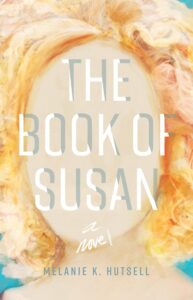Last Updated on October 23, 2024
I’ve been writing since I was a little girl—writing is a key way I have of making sense of the world. After I was diagnosed with bipolar disorder more than fifteen years ago, I sought to make sense of my diagnosis and my experience through my writing. Early on, one of my personal struggles involved how to keep on living faith, because my diagnosis, it seemed to me, made faith experiences suspect.
At some point, I had an idea of using the biblical narratives about Saul—both Saul of the Hebrew Bible and Saul/Paul of the New Testament—to write about bipolar disorder, because Saul (from the Saul and David stories) reads very much to me like someone who has such a diagnosis, and I wanted to reimagine these narratives as being told from Saul’s perspective, with Saul and not David as the protagonist. But I didn’t really pursue this meaningfully until after my first novel, The Dead Shall Rise, was published in 2016.
Finding a Living Faith Again

What I ended up with, after about a year and a half of writing, was a manuscript I’d titled The Book of Susan and a revitalized faith.
I don’t have an agent, so I sent the novel out to publisher after publisher, contest after contest. When I read Paraclete Press’ call for submissions in January of 2021 for their new fiction imprint, Raven, I wondered if The Book of Susan might be a good fit for them, because their vision for this new imprint seemed to have a lot in common with my own personal vision for the book. It had been very important to me to put the Saul character on a journey to hopefulness, unlike the story in the Hebrew Bible did, and Paraclete Press was looking for books about living faith in the midst of darkness. So I sent the manuscript to them and was thrilled when they contacted me and said they wanted to publish it. The book was released in July of 2022.
Mental Health Activism—One Way of Living Faith

I truly believe The Book of Susan could be impactful in societal conversations surrounding mental illness, if the book can find its way into the hands of the readers who need it. I hope readers will learn from the novel that people with mental illness are just ordinary people—that bipolar disorder is not a lurid, gossipy topic—and that mental illness is not a respecter of persons.
I also want readers to see what people with mental illness go through on a daily basis, but that they can survive and thrive in the wake of a diagnosis. Mental illness is a lifelong journey. Some days are easier than others, and people with mental illness are always already dealing with so much on top of the daily, ordinary doings. But the shame and the stigma that are such barriers to people seeking treatment are completely unnecessary, unwarranted. Mental illness shouldn’t be a secret. For people who have it, it is simply part of life.
Living Faith for All
I was inspired to read Make a Difference with Mental Health Activism, because I thought that this book really encourages regular people to do what they can just by being who they are and by using what they have, right now. I enjoyed reading the personal stories of people who have become activists in their own ways. This book shows how anyone who wants to get involved and help fight the stigma of living with mental illness can do their part, in ways, large or small, that feel right to them. It takes everyone’s efforts to make that difference.
Like Make a Difference with Mental Health Activism, I think The Book of Susan can be a book for everyone. Everybody on this planet has come through a pandemic—and there is so much turbulence going on in the world. People everywhere need to know that it’s okay not to be okay. People everywhere are seeking how they can maintain an attitude of living faith—a resolute path toward hope, even if the way is circuitous or difficult—despite all the dire events taking place around us. I think that those of us with mental health challenges can help lead the way.
***
Read more about Melanie at her website. In addition to her book-length fiction, Melanie K. Hutsell has had short fiction published in Appalachian Heritage, Still: The Journal, The Madison Review, and elsewhere, and her poetry has appeared in The Sow’s Ear. Hutsell has also contributed to the Encyclopedia of Folklore and Literature, edited by Brown and Rosenberg. She holds a BA in English from the University of North Carolina at Chapel Hill, an MA in English from Indiana University at Bloomington, and an MBA from East Tennessee State University. An avid reader and music lover, she currently resides in Oak Ridge, Tennessee.
READ NEXT
Taraji P. Henson’s Passion for How to Impact African American Mental Health
Make a Plan, Get Started: Mental Health Activist Gabe Howard Encourages Action, Not Perfection
How Employees Can Make a Difference for Mental Health in the Workplace




Pingback: Taraji P. Henson’s Passion for How to Impact African American Mental Health
Pingback: How to Honor Mental Illness Awareness Week with Action